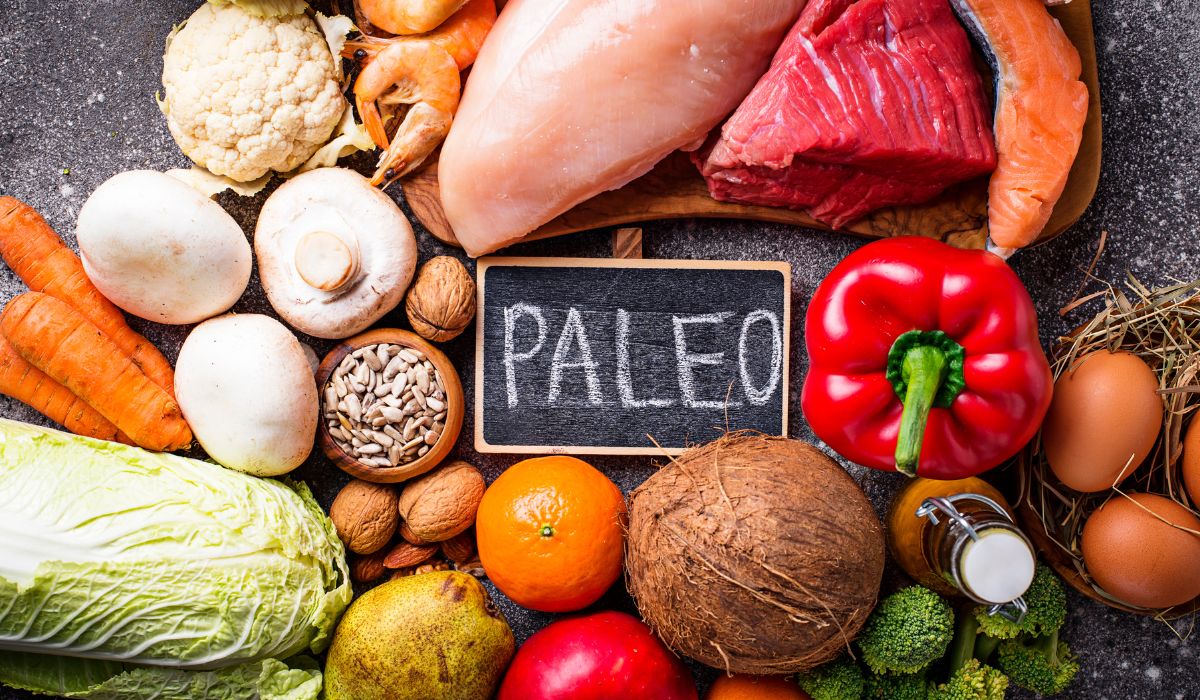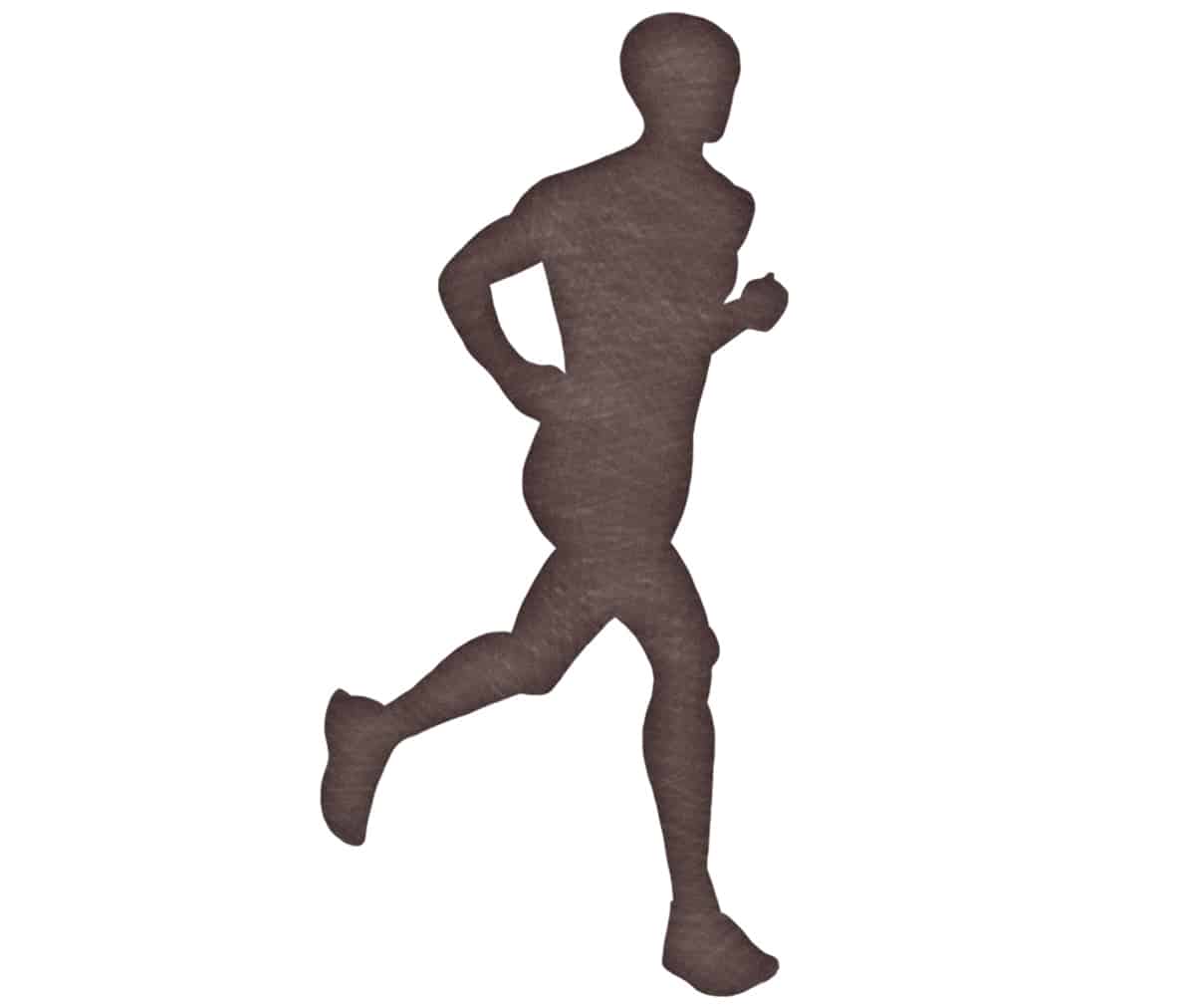
Running is a touchy subject on Paleo - some folks swear off it as a relic of their calorie-counting past they can’t wait to leave behind; other folks swear on it as the best thing they ever tried. If you're in the first group, that's totally fine - try lifting or swimming or hiking or literally anything else! But for the running-inclined (or running-curious), here are 5 things to know:
1. Eating Paleo is totally compatible with running.
If there’s one thing “everyone knows” about runners’ diets, it’s that runners eat a ton of carbs. If you’re a runner currently eating a typical American diet (or a healthified version with lots of oats and whole-wheat pasta), going Paleo might sound like a stretch: where are the post-workout carbs? And the pre-workout carbs? And the long run nutrition carbs?
The short answer is that they can be right there on your plate, if you want them - even on Paleo. Paleo doesn’t have to be low-carb. There are a lot of people who confuse “low-carb works for me personally” with “low-carb is the One True Way of Healthy Eating” - all those people are confused. Low-carb or keto Paleo can be great for some folks, but it’s not the only way for everyone. You can still get all the anti-inflammatory and gut-healing benefits of a Paleo diet with plenty of carbs on your plate. Sweet potatoes aren’t a cheat day food; they can be an everyday lunch food if that works for you.
Paleo carb sources include:
- Sweet potatoes
- White potatoes (really!)
- Bananas
- Plantains
- Other starchy roots like cassava
2. In fact, you might not even need that many extra carbs.
Paleo food can supply carbs if you need them to keep up with all the running. But with that said, you might find that you don’t actually need as many carbs as you thought you did: take a look at this overview of low-carb diets for athletes. Depending on your weekly volume and goals, huge piles of potatoes might just be unnecessary.
Even some elite long-distance athletes feel good on a low-carb, high-fat diet. For example, this case report documents an elite female triathlete who switched her diet from 73% carbs/14% fat/13% protein to 12% carbs/75% fat/13% protein - and started feeling much better and performing at a much higher level!
3. Check the mileage before you worry about health risks.

There are indeed a few studies - like this one - indicating that at very high weekly volume sustained for years on end, runners may face some cardiovascular damage. But that’s people regularly running marathons and ultramarathons, not your average Joe or Jane going for a jog a few times a week. It’s all about keeping it in perspective and understanding which studies actually apply to your behavior.
Humans might even be naturals at endurance running up to a point - there’s a whole evolutionary theory that we evolved partly as persistence hunters, meaning that we essentially ran our prey down into exhaustion by sheer dint of staying power. This doesn’t mean that everyone has to run to be Paleo, but if you care about what kinds of diet or lifestyle choices might naturally fit your body's evolutionary history, it's a point in favor of running. (On the other hand, ancient persistence hunters weren’t running on asphalt and concrete surfaces - there are plenty of reasons why the modern sport of running might not work for someone regardless of what cavemen did or didn't do!)
4. Health benefits peak at a relatively low volume.
One of the main reasons why so many people hate running is the joylessness of it - if you’re thinking of it just as a way to “make up for” eating junk food by burning a lot of calories, then it does become just a contest of misery endurance: the longer you stick it out, the more junk you get to eat.
But Paleo eaters know that…
- Exercise doesn’t burn a lot of calories, compared to what people want to eat “because I worked out. Trying to out-run a bad diet is futile and studies on exercise alone (without diet changes) show that it reliably produces almost 0 weight loss.
- Calorie-counting is an unsustainable strategy for almost everyone.
- Exercise is about health, not losing weight or burning calories. (Even though having better health indirectly helps you lose weight)
With that in mind - the actual health benefits of running peak at a surprisingly low weekly mileage. This review and meta-analysis analyzed recent (since 2000) studies with 500 subjects or more. The authors combined data from all those studies and divided runners up into five groups based on how much they ran.
The lowest-volume runners in that study ran 1-2 times per week, for about 6 miles per week in total. Not 6 miles per run. 6 miles per week. On average, they spent less than 1 hour per week on running (not counting changing/travel time - this was only the time spent actually running). Their average speed was 6 miles per hour, or a 10-minute mile. And these folks saw almost the same health benefits as runners doing much higher mileage at a much faster pace. In the highest volume group, runners were running 6 or more times per week, for over 20 miles per week and 3+ hours of running - for roughly the same benefits and even, at the high end, a very slight additional risk.
This research doesn’t mean that running higher mileage is bad, but it does show that even very low mileage is good for cardiovascular health and general well-being. You don’t have to burn a lot of calories running for it to provide great health benefits. It doesn’t have to be a giant volume-slog.
5. It has benefits totally unrelated to weight loss.
Running isn't a great plan for weight loss - but it has all kinds of fringe benefits where you'd least expect them.
A meta-analysis found that running improves measures of overall health like resting heart rate and blood lipid level - and of course, it enhances overall cardiorespiratory fitness.
But to take a lesser-known example, running has surprising benefits for gut and digestive health - which is one of the biggest non-weight-loss reasons why people try Paleo. For instance, this study found that regular runners tended to have lower rates of constipation. Another study demonstrated benefits for people with Irritable Bowel Syndrome (IBS). It’s a pretty neat perk and it works even if you have no weight to lose.
It’s not for everyone, but it might be for you!
Some people are happy runners; other people really aren’t - and either way, it’s fine! But if you’re running-inclined - or running-curious - a running habit can be totally compatible with a Paleo approach to diet.





Leave a Reply